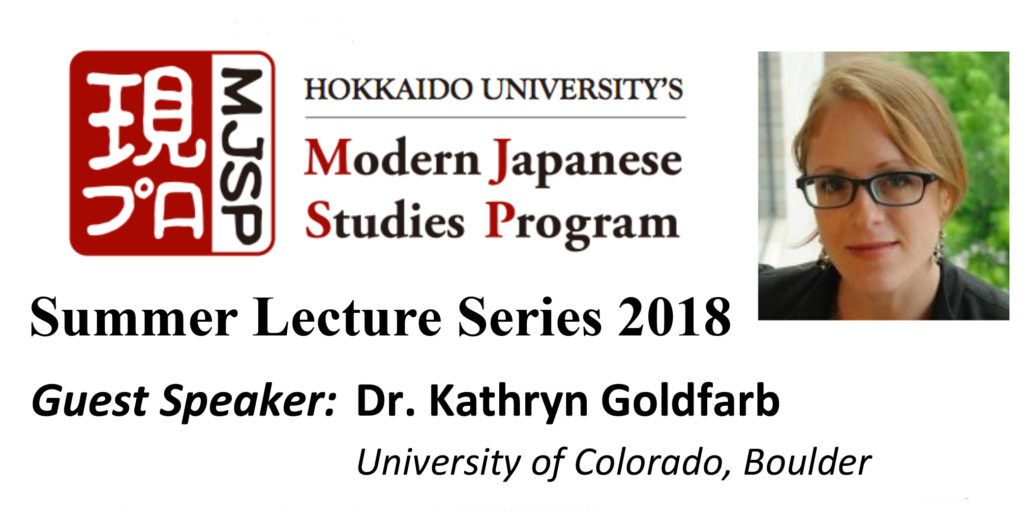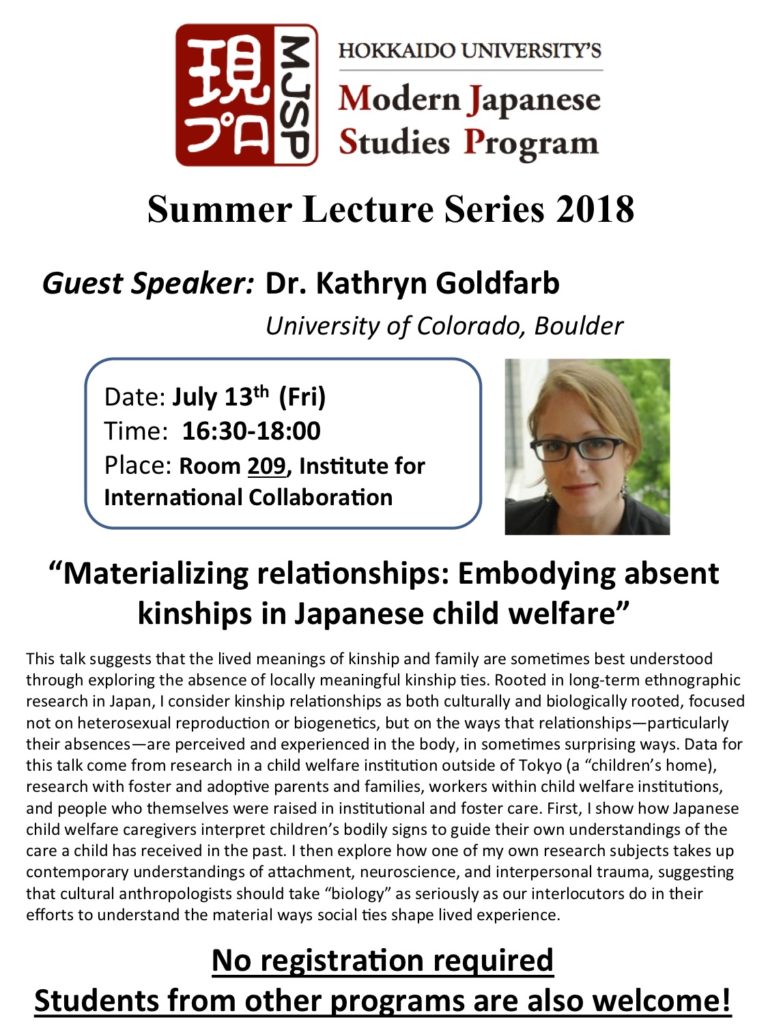Materializing relationships: Embodying absent kinships in Japanese child welfare
Event | July 13, 2018
This talk suggests that the lived meanings of kinship and family are sometimes best understood through exploring the absence of locally meaningful kinship ties. Rooted in long-term ethnographic research in Japan, I consider kinship relationships as both culturally and biologically rooted, focused not on heterosexual reproduction or biogenetics, but on the ways that relationships—particularly their absences—are perceived and experienced in the body, in sometimes surprising ways. Data for this talk come from research in a child welfare institution outside of Tokyo (a “children’s home”), research with foster and adoptive parents and families, workers within child welfare institutions, and people who themselves were raised in institutional and foster care. First, I show how Japanese child welfare caregivers interpret children’s bodily signs to guide their own understandings of the care a child has received in the past. I then explore how one of my own research subjects takes up contemporary understandings of attachment, neuroscience, and interpersonal trauma, suggesting that cultural anthropologists should take “biology” as seriously as our interlocutors do in their efforts to understand the material ways social ties shape lived experience.
■ Title
Materializing relationships: Embodying absent kinships in Japanese child welfare
■ Speaker
Dr. Kathryn Goldfarb, University of Colorado, Boulder
■ Date
7/13/2018 (Fri.) 16:30-18:00
■ Location
Room 209, Institute for International Collaboration
■ Inquiries
Modern Japanese Studies Program
mjsp@oia.hokudai.ac.jp
No registration required. Students from other programs are also welcome!


